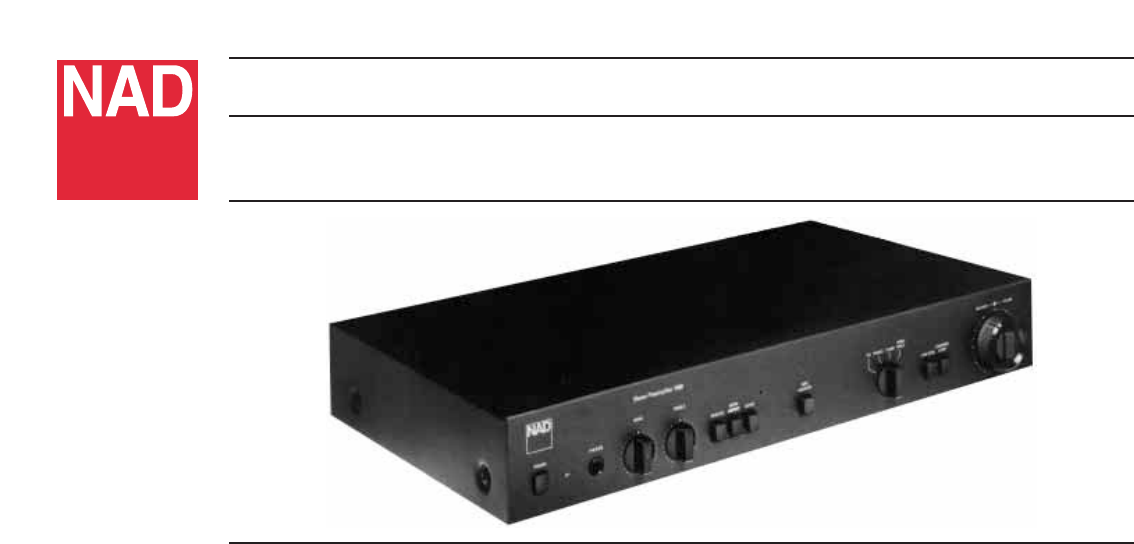
1130
Stereo Preamplifier
Date of manufacture : Jan 87 - Feb 89
Please note that this document contains the text from the original product brochure, and some technical statements may now be out of date
• Extremely low noise and high headroom for a total dynamic range exceeding 105 dB in every stage.
• Wide-range discrete phono preamp, switch-able for low-noise operation with MM and MC
cartridges.
• Bass EQ and infrasonic filtering for solid, powerful deep bass without boomy midbass or rumble.
• Overload-proof line-level inputs for digital disc and tape.
• Powerful headphone amplifier circuit; no power amp needed for full-volume headphone listening.
The NAD 1130 continues the NAD tradition of remarkable price/performance value. An audiophile-
quality preamplifier at an extraordinarily low price, the NAD 1130 is the optimum choice for listeners
who want a simple, high-performance control centre for use with a powerful amplifier, a bi-amplified
system, or active powered loudspeakers.
Do not be deceived by the 1130’s external simplicity and bargain cost; this is not a compromise product,
nor a halfway step toward high-quality sound. Its economy is a result of simple but functional controls,
canny engineering, efficient manufacturing, modest input/output flexibility, and the elimination of
seldom-used features. Behind its modest front panel the 1130’s circuitry-and its sonic performance-are
the equal of most preamplifiers costing two or three times more.
Circuit Features
Wide-Range Phono Preamplifier. As long as vinyl phono-graph records remain an important high-quality
music source, the phono preamp stage will be the heart of any fine preamplifier- its most important
circuit and potentially its weakest link. In contrast to the budget IC stage used in many preamplifiers
today, the phono section of the NAD 1130 is a recently designed discrete-transistor circuit with a very
precise RIAA equalisation network, whose performance equals or exceeds that of far more expensive
preamps.
• The 1130 lets you take full advantage of today’s high quality LPs, because its phono preamplifier is
audibly quieter than most other preamps (and quieter than any record). In fact its residual noise level
is close to the theoretical limit set by the cartridge itself. This is because the design is optimized, not
for the usual short-circuit input, but for the impedances of real magnetic cartridges.
• For low-output moving coil cartridges a rear-panel switch re-sets the preamp’s parameters to provide
20 dB of added gain with extremely low noise. It is quieter than many separate pre-preamplifiers, and
it lets you avoid the high cost and hum problems of step-up transformers.
• The phono circuit interfaces correctly with the high im-pedances of moving-magnet pickup cartridges,
avoiding com-plex impedance interactions that can alter the pickup’s fre-quency response.
• The input capacitance is switch-selectable, allowing you to provide the loading that the cartridge
needs for flattest response.
• The dynamic range of the phono stage, over 105 dB, is ample for the widest-range digitally mastered
recordings.





